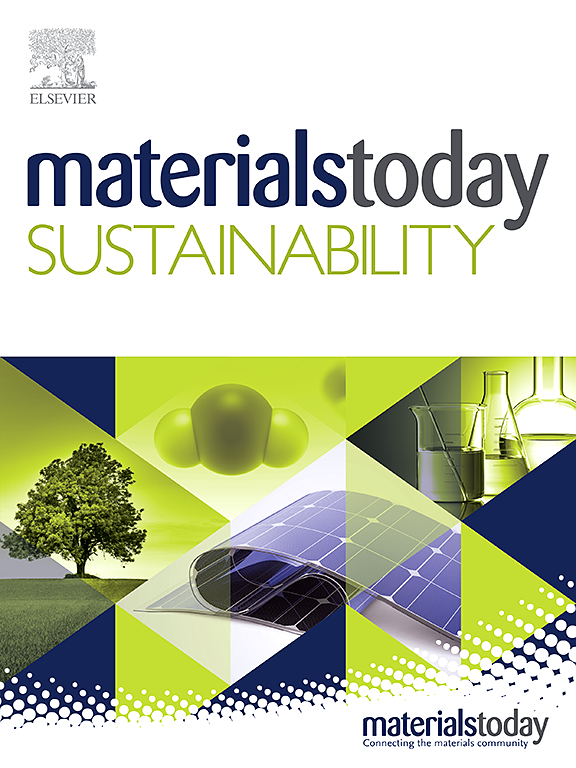Life Cycle Assessment for sustainable civil infrastructure with standardized functional units and boundaries
IF 7.9
3区 材料科学
Q1 GREEN & SUSTAINABLE SCIENCE & TECHNOLOGY
引用次数: 0
Abstract
This study critically explores the integration of Life-Cycle Assessment (LCA) within civil engineering as a strategy to enhance the sustainability of infrastructure projects. Focused on assessing environmental impacts throughout project lifecycles from material extraction to decommissioning, LCA emerges as a vital tool for sustainable development. Utilizing detailed case studies, we applied LCA methodologies to assess their efficacy in reducing environmental footprints and guiding decision-making toward sustainability objectives. The findings demonstrate significant improvements in the accuracy of environmental impact assessments through the adoption of advanced digital technologies and sector-specific databases. Challenges such as limited data availability and the complexity of LCA methods were identified. Strategies to address these challenges include educational programs to enhance understanding and adoption of LCA, alongside technological innovations that streamline data collection and analysis processes. Our study underscores the potential of LCA to drive civil engineering practices towards more resilient, sustainable, and circular infrastructure solutions. This analysis confirms the growing importance of LCA in project planning and highlights its role in achieving global sustainability targets, advocating for its wider adoption in civil engineering practices.
具有标准化功能单元和边界的可持续民用基础设施生命周期评价
本研究批判性地探讨了生命周期评估(LCA)在土木工程中的整合,作为提高基础设施项目可持续性的策略。LCA侧重于评估从材料提取到退役的整个项目生命周期的环境影响,是可持续发展的重要工具。通过详细的案例研究,我们应用LCA方法来评估它们在减少环境足迹和指导决策实现可持续发展目标方面的功效。研究结果表明,通过采用先进的数字技术和针对特定行业的数据库,环境影响评估的准确性得到了显著提高。确定了诸如有限的数据可用性和LCA方法的复杂性等挑战。应对这些挑战的策略包括加强对LCA的理解和采用的教育项目,以及简化数据收集和分析过程的技术创新。我们的研究强调了LCA在推动土木工程实践向更具弹性、可持续和循环的基础设施解决方案发展方面的潜力。这一分析证实了LCA在项目规划中日益增长的重要性,并强调了其在实现全球可持续发展目标方面的作用,倡导在土木工程实践中更广泛地采用LCA。
本文章由计算机程序翻译,如有差异,请以英文原文为准。
求助全文
约1分钟内获得全文
求助全文
来源期刊

Materials Today Sustainability
Multiple-
CiteScore
5.80
自引率
6.40%
发文量
174
审稿时长
32 days
期刊介绍:
Materials Today Sustainability is a multi-disciplinary journal covering all aspects of sustainability through materials science.
With a rapidly increasing population with growing demands, materials science has emerged as a critical discipline toward protecting of the environment and ensuring the long term survival of future generations.
 求助内容:
求助内容: 应助结果提醒方式:
应助结果提醒方式:


